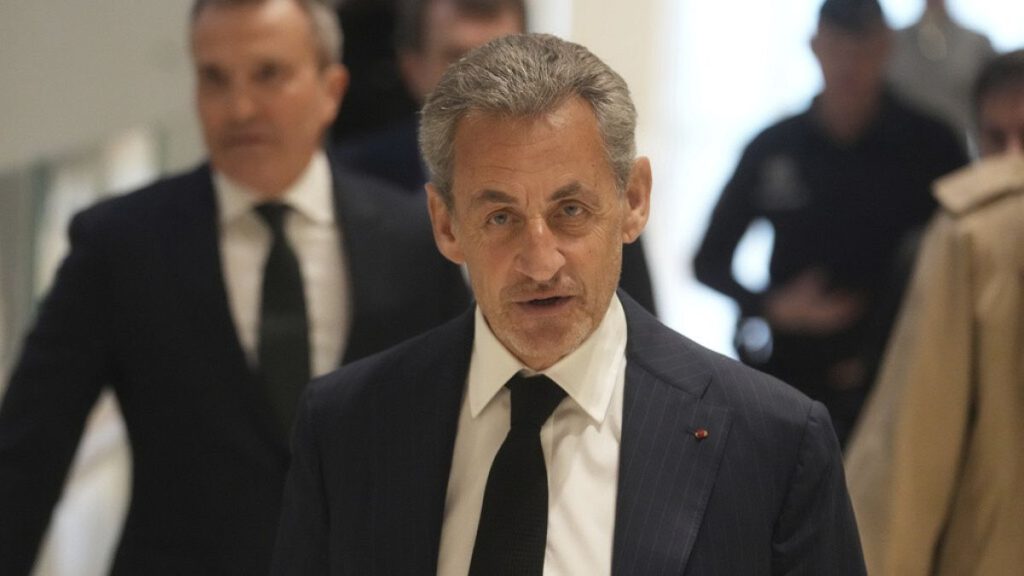The former French President, Nicolas Sarkozy, stands accused of accepting millions of euros in illicit campaign funding from the late Libyan dictator Muammar Gaddafi for his successful 2007 presidential bid. This complex case, which began its trial proceedings in a Paris court, carries weighty charges against Sarkozy, including passive corruption, illegal campaign financing, concealment of embezzlement of public funds, and criminal association. These charges, if proven, could result in a prison sentence of up to ten years. Sarkozy vehemently denies these allegations, asserting his innocence before the court and claiming that not a single Libyan euro or cent tainted his campaign finances. He has characterized the accusations as a fabricated plot orchestrated by “liars and crooks,” including members of the Gaddafi regime, seeking vengeance against him.
Central to the prosecution’s case is the allegation of a quid-pro-quo arrangement between Sarkozy and Gaddafi. The timing of the accusations, emerging shortly after Sarkozy called for Gaddafi’s removal from power during the Arab Spring uprisings in 2011, raises questions about the motivations behind the claims. Sarkozy argues that this timing suggests a retaliatory motive, undermining the credibility of the accusations. He specifically challenges the authenticity of a key document purportedly from Libyan intelligence, which outlines Gaddafi’s agreement to provide €50 million to Sarkozy’s campaign. While French investigators have previously deemed the document to possess characteristics of authenticity, definitive proof of the alleged transaction remains elusive.
The investigation into these accusations delves into a series of trips to Libya undertaken by individuals close to Sarkozy, including his then-chief of staff Claude Guéant, during the period leading up to the 2007 election. Sarkozy, a lawyer by training, maintains his innocence, emphasizing his indignation and anger at the accusations. He points to his successful negotiation with Gaddafi for the release of five Bulgarian nurses and a Palestinian doctor, wrongly accused and convicted in Libya, as evidence of his diplomatic efforts rather than corrupt dealings. This release, followed by significant cooperation agreements between France and Libya in defense, health, and counterterrorism, occurred shortly after Sarkozy’s presidential victory.
This trial not only ensnares Sarkozy but also involves eleven other defendants, including three former government ministers. However, the proceedings are marked by the absence of key figures. Ziad Takieddine, a Franco-Lebanese businessman accused of acting as an intermediary in the alleged illicit funding scheme, has fled to Lebanon and remains beyond the reach of the French court. Similarly, Bashir Saleh, Gaddafi’s former chief of staff and treasurer, who sought refuge in France during the Libyan civil war before relocating to the United Arab Emirates, is also absent from the proceedings. These absences complicate the pursuit of a comprehensive understanding of the alleged financial transactions.
The Libyan financing case represents a significant threat to Sarkozy’s legacy, adding another layer to his already complicated legal history. This trial comes on the heels of two other convictions against the former president. Recently, France’s highest court upheld a conviction for corruption and influence peddling related to a separate case involving wiretapped phone conversations during the Libya inquiry, resulting in a one-year house arrest sentence with electronic monitoring. Furthermore, Sarkozy was found guilty of illegal campaign financing in his unsuccessful 2012 re-election bid. These legal battles cast a long shadow over his time in office and his standing in French public life.
The outcome of this trial remains uncertain. The prosecution bears the burden of proving Sarkozy’s guilt beyond a reasonable doubt, while the defense continues to vigorously contest the accusations. The absence of key witnesses and the reliance on complex financial trails create significant challenges for both sides. This high-profile case, with its intricate web of political intrigue and international implications, promises to captivate public attention as the court grapples with conflicting narratives and seeks to uncover the truth behind the allegations against the former French president. The verdict, whenever it arrives, will undoubtedly have a profound impact not only on Sarkozy’s personal future but also on the broader landscape of French politics and its relationship with Libya.














